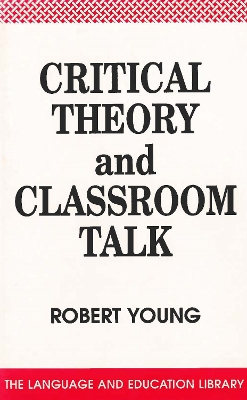The Language and Education Library
1 total work
The theory of critique, or 'critical theory', as developed by Habermas and applied to education by Young, is far from being merely negative. It is quite explicitly an optimistic educational theory, in which the hope for rational progress, peace, global understanding and ecological sanity, is celebrated. Now that dogmatic Marxism has been swept into the rubbish bin of history, it may be possible to engage in a less paranoid appraisal of the claims of critical theory — the most revisionist legacy of Marxism. A close look shows it to be eminently practical, democratically-minded and responsible. In this book, Young summarises critical learning theory, shows its relationship to educational research, particularly research on classroom communication, and demonstrates its value for classroom teachers in a variety of 'real-life' classrooms. Far from being a utopian approach, it comes to grips with the everyday problems of teachers in real, imperfect, underfunded schools. Motivation, interest, getting through the work, achieving real understanding and teacher-planner relationships are fully discussed, using classroom transcripts.
